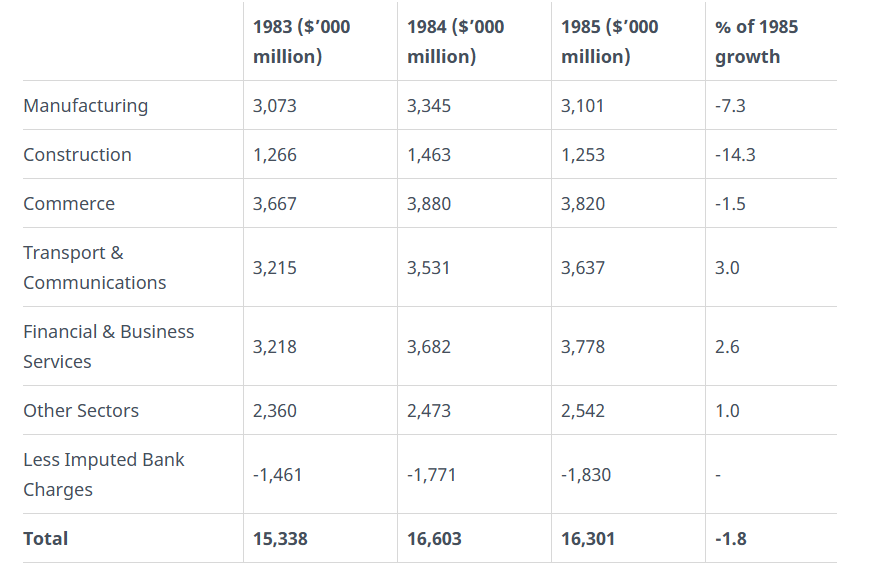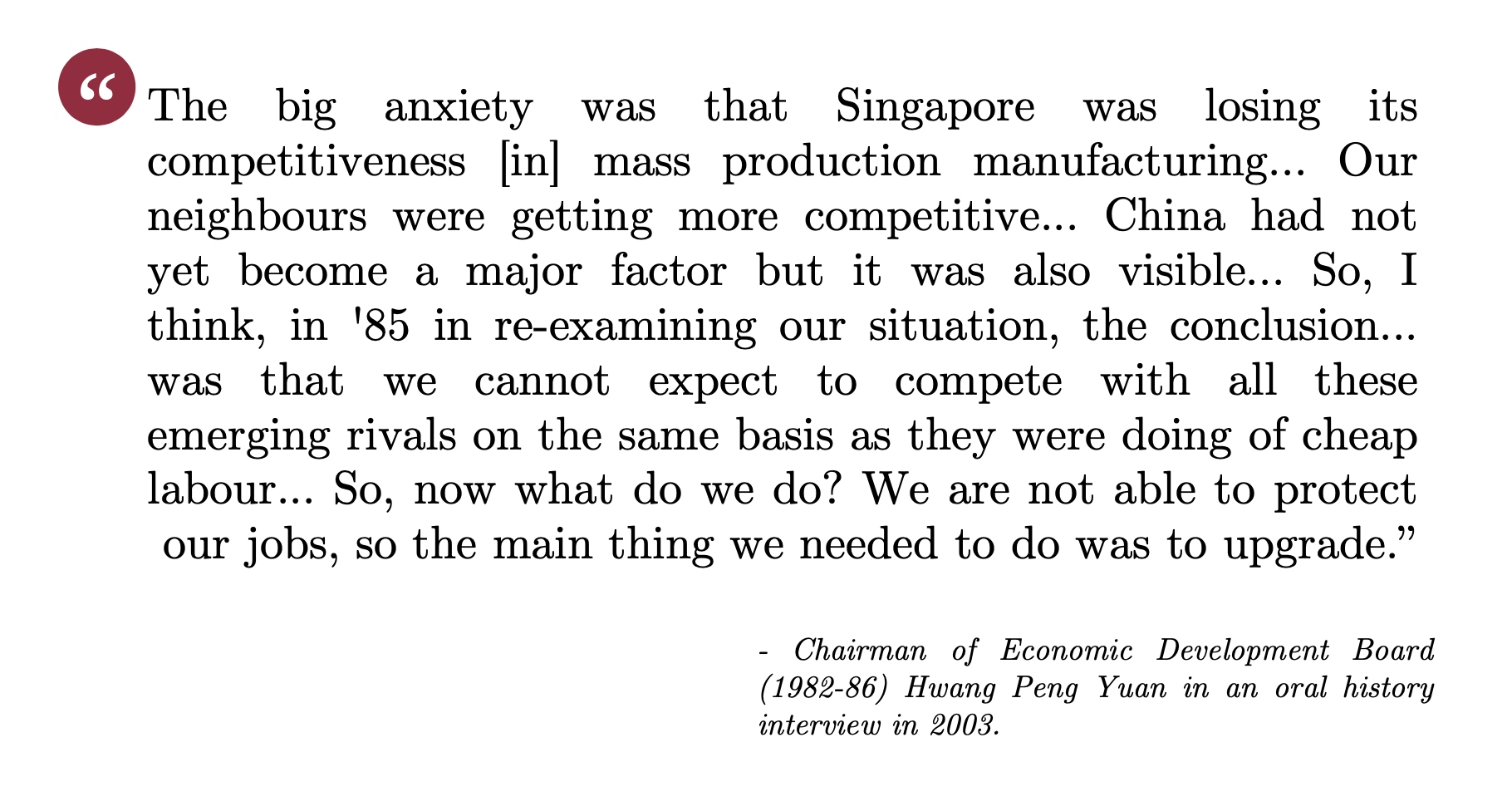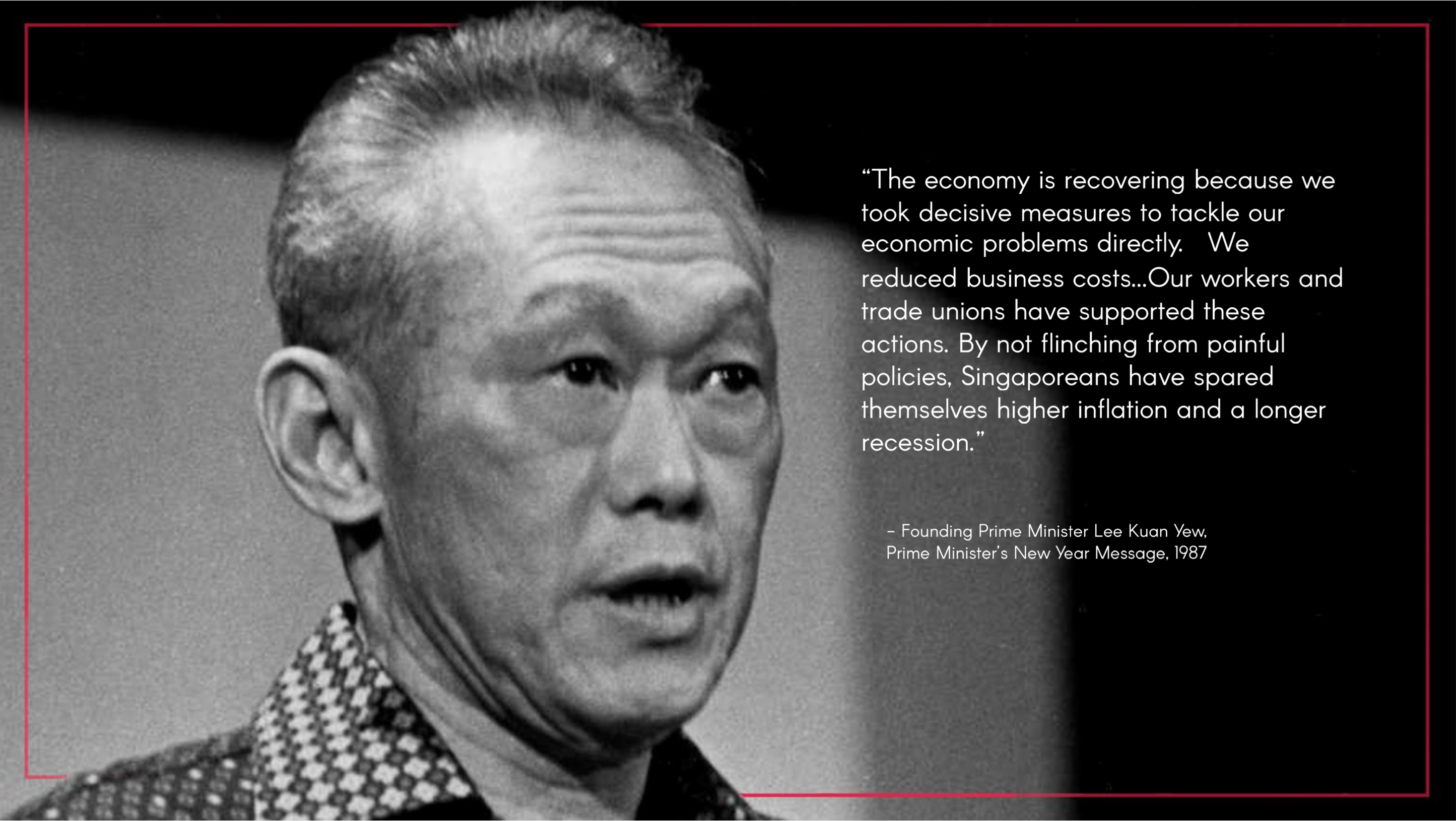The 1985 Recession: Growth Interrupted
Digging Deeper: Case Studies
The 1985 Recession: Growth Interrupted
2 minute read
After enjoying uninterrupted growth for nearly 20 years, Singapore faced its first recession in 1985, which tested our resolve and crisis management.
The recession was caused by several factors, including weak economic growth globally which slowed demand for Singapore’s exports, as well as structural problems within our economy.
 (Source: Economic Survey of Singapore 1985 via NAS)
(Source: Economic Survey of Singapore 1985 via NAS)
One key factor was the slump in construction. In the late-1970s to the early-1980s, Singapore went through a major construction boom, contributing to almost a third of economic growth during the period. However, with booms come busts, and economic growth declined when this happened.
This problem was caused by deeper issues in the our economic structure. While the wage correction policy hastened Singapore’s move up the value chain, the acceleration of rising costs also decreased our competitiveness.

In March 1985, then-Minister for Trade and Industry Tony Tan formed the Economic Committee. Helmed by then-Minister of State for Defence and Trade and Industry Lee Hsien Loong, the committee was tasked to study the recession and Singapore’s recovery. It published a refort, “The Singapore Economy: New Directions”, in 1986, and recommended several policy reforms.
In order to lower production and labour costs, it recommended cutting Central Provident Fund (CPF) contribution by 15% and putting in place temporary wage restraints. It also recommended cutting corporate and income taxes, and for companies to embark on wage reform to introduce wage flexibility.
With these reforms, Singapore‘s growth rate increased to 10.8% in 1987, kicking off a period of strong growth that lasted into the 1990s.
The committee also recommended that Singapore continue moving up the value chain in the long-term. This includes developing and exporting services, and moving beyond functioning as an offshore production base. Singapore should also continue to develop itself into a conducive environment for businesses to thrive, such as having competitive taxes and a strong regulatory regime.
The ability to recover from recession came of a decisive government and a people willing to take a bitter pill for long-term gain, said then-Prime Minister Lee Kuan Yew in 1986:



